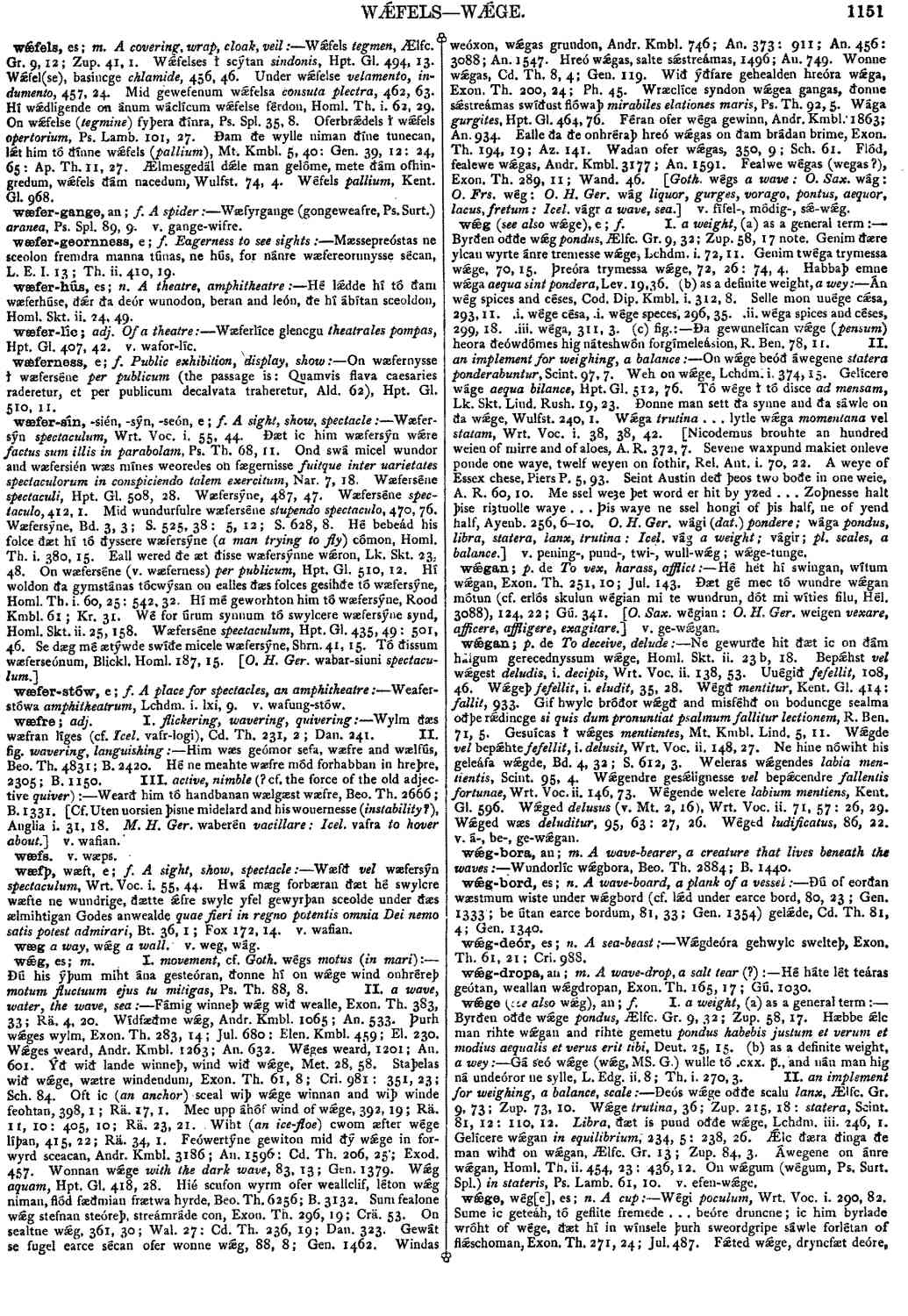wǽge
- noun [ feminine ]
-
Byrðen oððe wǽge
pondus,
- Ælfc. Gr. 9, 32; Zup. 58, 17.
-
Hæbbe ǽlc man rihte wǽgan and rihte gemetu
pondus habebis justum et verum et modius aequalis et verus erit tibi,
- Deut. 25, 15.
-
Gá seó wǽge (wǽg,
- MS. G.) wulle tó .cxx. , and nán man hig ná undeóror ne sylle, L. Edg. ii. 8; Th. i. 270, 3.
-
Ðeós wǽge oððe scalu
lanx,
- Ælfc. Gr. 9, 73; Zup. 73, 10.
-
Wǽge trutina, 36; Zup. 215, 18: statera, Scint. 81, 12: 110, 12.
Libra,
ðæt is pund oððe wǽge,- Lchdm. iii. 246, 1.
-
Gelícere wǽgan
in equilibrium,
- 234, 5: 238, 26.
-
Ǽlc ðæra ðinga ðe man wihð on wǽgan,
- Ælfc. Gr. 13; Zup. 84, 3.
-
Áwegene on ánre wǽgan,
- Homl. Th. ii. 454, 23: 436, 12.
-
On wǽgum (wégum, Ps. Surt. Spl.)
in stateris,
- Ps. Lamb. 61, 10.
Bosworth, Joseph. “wǽge.” In An Anglo-Saxon Dictionary Online, edited by Thomas Northcote Toller, Christ Sean, and Ondřej Tichy. Prague: Faculty of Arts, Charles University, 2014. https://bosworthtoller.com/34260.
Checked: 0